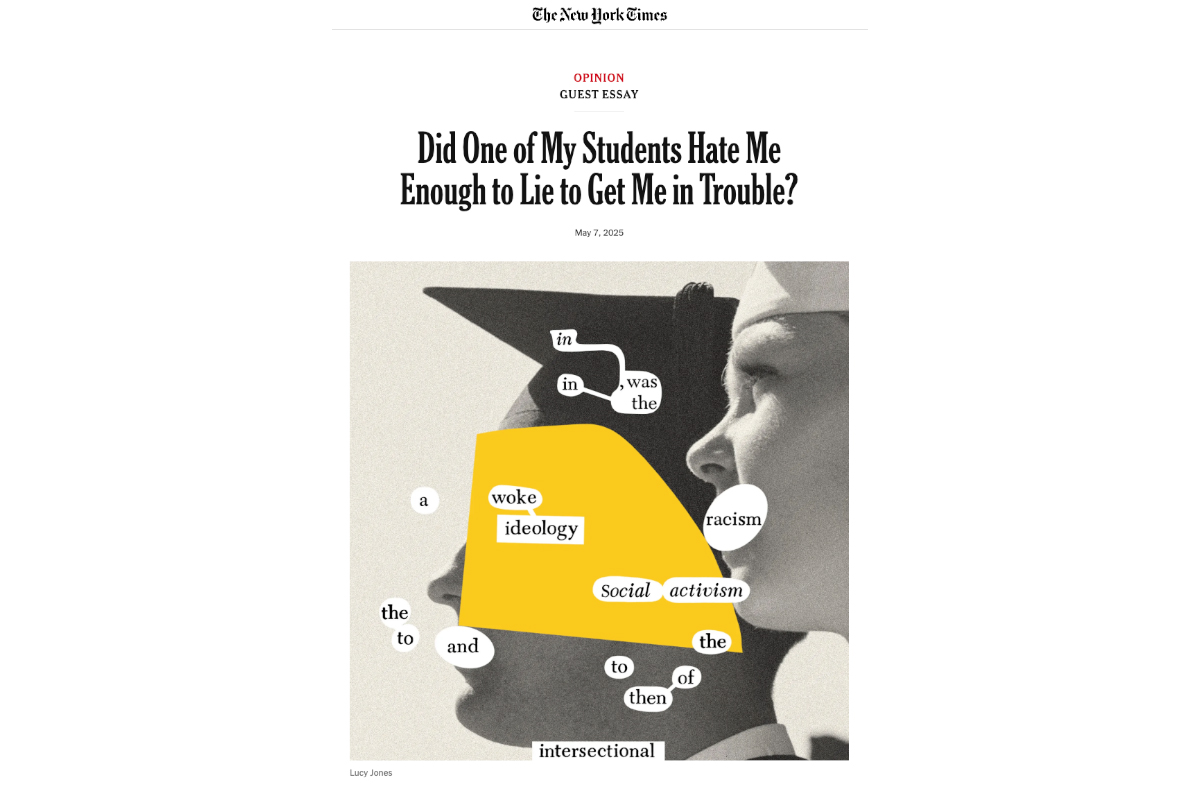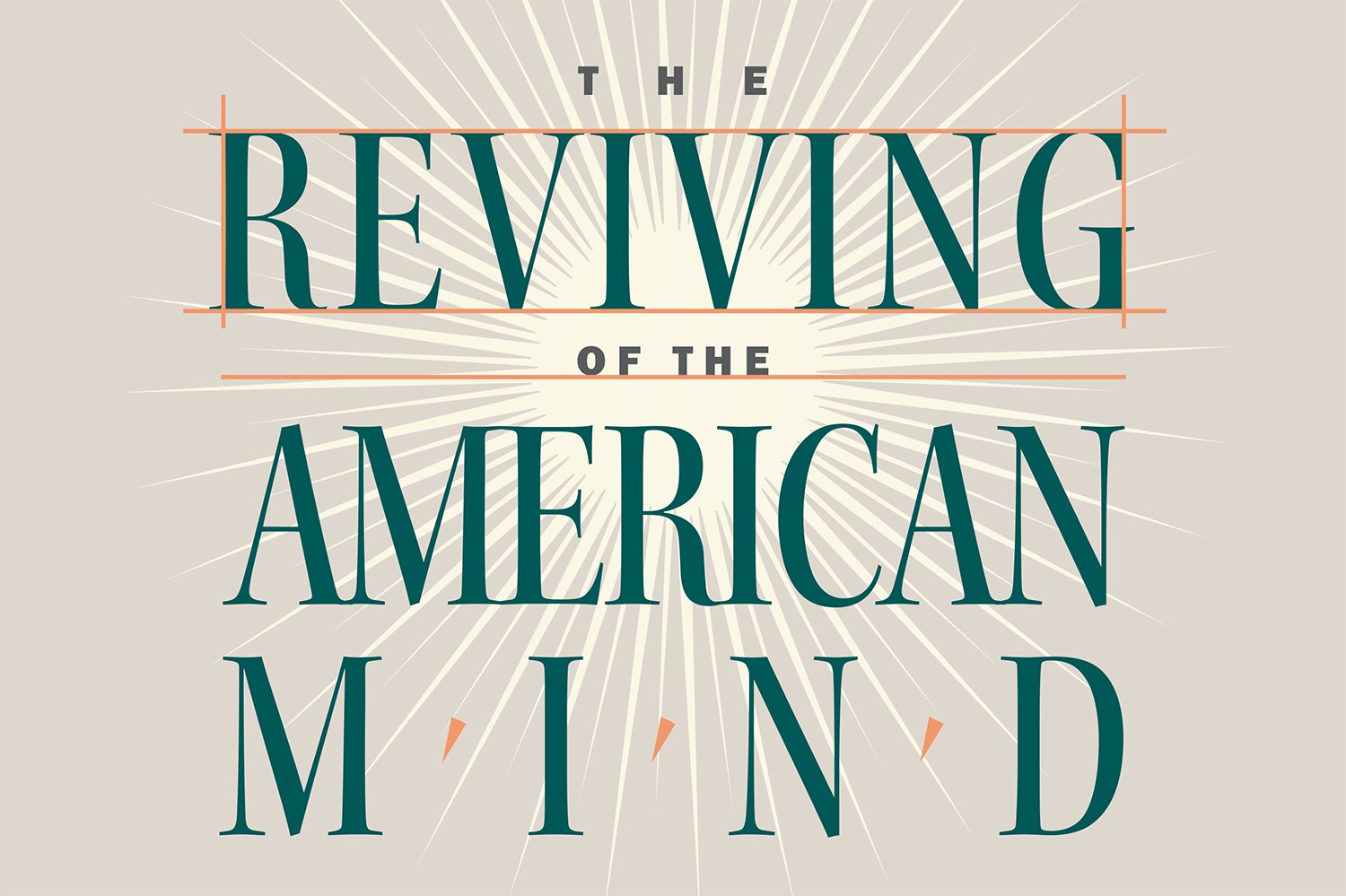Thanks to a panel of the Fourth Circuit Court of Appeals, firing faculty members for “lack of collegiality” is suddenly a bright prospect for college administrators eager to rid themselves of gadflies, diversiphobes, conservatives and other riffraff. The case involved Stephen Porter, a tenured professor in the school of education at North Carolina State University, who had had the bad grace to object to various forms of mandatory diversity saluting. Some details to follow, but let’s first roll around in the hay of “collegiality.”
The two members (out of three) on the Fourth Circuit who invoked the term were not entirely breaking new ground. The woker sort of faculty and college administrators have been fondling the idea for a while. They like it because it suggests an easy way to win arguments without the bother of actually arguing or producing evidence. It comes down to: we cannot work with Professor Von Grimstone because he is mean. He makes us feel bad about ourselves. He harms our students by failing to affirm them. His lack of “collegiality” makes him unfit for our happy community.
If collegiality were gauged on a scale of one (low) to ten (high), I have known several faculty members who would probably rate in the negative numbers. I’d give a minus three to the faculty member who knowingly spread false stories about a colleague he envied; a minus five to the faculty member who blackballed a highly qualified candidate over a quibble about the proper interpretation of one word in a text; and a minus ten to the professor who made a sport of seeing if could derail the careers of young untenured faculty members with whom he had no personal dealings at all.
So I’d say “lack of collegiality” can be real. None of those three I mentioned was punished for his bad behavior. In fact I know of their bad behavior because they boasted about it. Not only were they not punished, all three thrived. But none of them plumbed the real depths of anti-collegiality, where the poison pen gives way to actual strychnine, and snide remarks descend to quicklime burials behind the cloisters. At a certain point lack collegiality turns into wanton murder, but there are laws against that do not depend on first finding the offender guilty of bad manners.
Do we even have the right word for behavior that is uncollegial? I would have said rude would suffice or perhaps standoffish. But English has lots of words to describe ill-mannered, frigid, and cranky people. I won’t try to exhaust them in this article. That would be cheerless. But naming something by its absence is stingy. Perhaps we should think of the uncollegial person as someone with an underappreciated positive quality: the pleasant acidity of a Pinot Noir, the reveille of a ghost pepper, or blessed with an abundance of asperity. Of course there can be too much of this good thing. The pleasing bite can become harsh, but let’s not assume that collegiality is all good, and its absence all bad.
We now see a good many faculty members who are at risk of being fired or have already lost their jobs because their universities deem them guilty of lack of collegiality. Amy Wax, Scott Gerber, Dave Porter, Matthew Garrett and Richard Paxton are among those whose home institutions have targeted them for some variation on the theme that they were or are mean people who have said untoward things to colleagues or expressed opinions that hurt the feelings of students. I’ve written about and often on behalf of all these folks, which has made my organization something of a hub for dissenters who have run afoul of the keepers of collegiality, those benevolent folks who stand ready to demonstrate their tolerance with pails of tar, fluffy feathers and sharpened pitchforks. The case of law professor Scott Gerber at Ohio Northern University has been at the top of my list for the last several months, and I have written about here, here, and here.
Normally all these cases would be considered matters of expression protected by academic freedom. Normally faculty members are judged by the quality (and quantity) of their scholarship, the quality of their teaching, and their service to the academic community, which usually means their committee work. But these are not normal times. These are times in which freedom of expression has been eclipsed by the rise of doctrines espoused by people who regard any contrary views or dissent as abhorrent. Much has been written about this phenomenon and I fear the poor horse is beyond further beating.
Two short points. First, the university authorities generally attempt to mask their attempts to fire such faculty members by citing something other than the content of their speech. Matthew Garret at Bakersfield College in California founded a group called the Renegade Institute for Liberty and rallied some of his faculty colleagues to oppose the college’s aggressive “diversity” campaign. But his college president went after him for allegedly violating “Covid-19 protocols, cursing at a colleague, and sending a potentially threatening email to a trustee.” The charges keep piling up but it is pretty plain that they are all a smokescreen for the attempt to rid the campus of a faculty member who opposes the president’s ideological agenda.
Second, the trip wires are everywhere. The academic whose opinions or convictions on a wide range of matters vary from the campus orthodoxy by more than a few degrees had better take care. The orthodoxies are many and constantly multiplying: race, gender, gender-preference, climate, guns, pronouns, drugs, immigration, borders, Covid, elections, transgender athletes and beauty queens, standardized tests, Supreme Court justices, college admissions, Islam, terrorism, meat, homelessness, police, incarceration, among others. In many cases staying silent is not an option. To stay in good standing with his colleagues, a faculty member must affirm the orthodoxies and refrain from drawing small but hurtful distinctions such as, “The brutality of so-called border enforcement offends me profoundly but I am concerned that members of ISIS are gaining entry too.”
Well enough of that. We could spend all day decrying the injustice of faculty members driven into exile or diverted into fighting for their careers over perfectly valid exercises of academic freedom. I want to address the Fourth Circuit’s willingness to indulge the idea that this travesty can be justified on the grounds that the alleged miscreants displayed a lack of collegiality.
If the court’s idea is that any expressed disagreement with a relevant orthodoxy is a lack of collegiality, we are left with a college or university comprised wholly of busy robots and mute mannequins. Surely that can’t be the court’s intent. Academic freedom must allow for some degree of dissent.
Where is the dividing line between permissible dissent and “lack of collegiality” to be found? The Fourth Circuit panel’s majority opinion isn’t very clear about this. The key for the panel was that Porter failed to prove (to the panel’s satisfaction) that he was fired because the university didn’t like what he said. In the fancier language of the panel, Porter “has failed to allege a causal connection between the only communication that is arguably protected under the First Amendment and the alleged adverse employment action.”
The majority dismissed out of hand as “unprotected speech” the various things Porter had said that annoyed his colleagues, and focused on the one instance in which Porter lambasted an organization, the Association for the Study of Higher Education (ASHE). Porter wrote on his personal blog, “ASHE Has Become a Woke Joke.” Porter denounced ASHE because he believed it had shifted its focus from higher education research to social justice. The post gained media attention and not long after Penny A. Pasque, head of Porter’s department, accused Porter of “bullying.” She also told Porter that students were having “strong reactions” to his criticisms of ASHE and invited Porter to have a meeting, “a community conversation,” about their concerns. Porter’s refusal was taken by Pasque as “another example of Appellant’s lack of collegiality.” Pasque suggested Porter depart from the department, the Higher Education Program Area (HEPA), but her letter telling him that did not mention the “woke joke” incident. Instead:
“Appellee Pasque’s letter indicated that if Appellant “fail[s] to repair the relationships among faculty in the Higher Education program” or displays a “lack of collegiality” again, Appellant would be removed from the HEPA.”
One could go for many pages of this, and the opinion is there for those who relish the details, as is Judge Richardson’s dissent. But I will leave it at that.
The two-member majority of the Fourth Circuit was plainly eager to take the North Carolina State University authorities at their word. Professor Porter was an obstreperous individual who acted with no regard for the delicate sensibilities of his colleagues and students.
From a distance I would say Professor Porter saw their game clearly from the start. Sacrificing academic standards and serious intellectual inquiry for political posturing did not sit well with him. He said so. Plainly. Then robustly. Then sarcastically. And always unapologetically. That meant, in the eyes of the university and then in the eyes of the panel’s majority, he was uncollegial.
I would say he was brave and principled. Maybe he was also at times rude and he was stand-offish when it became clear what Professor Pasque was up to. Perhaps he introduced his students to the pleasant acidity of a Pinot Noir or the surprising tang (not to say searing heat) of a ghost pepper. They were no worse off for it.
I’d like to think we could rescue the concept of “collegiality” from the bad actors who have seized it as a cudgel with which to beat their enemies. Collegiality is a viable ideal in higher education, but only if we understand it expansively enough to include figures such as Stephen Porter, who bring some tough-minded honesty to what increasingly looks like another “low dishonest decade.”

























